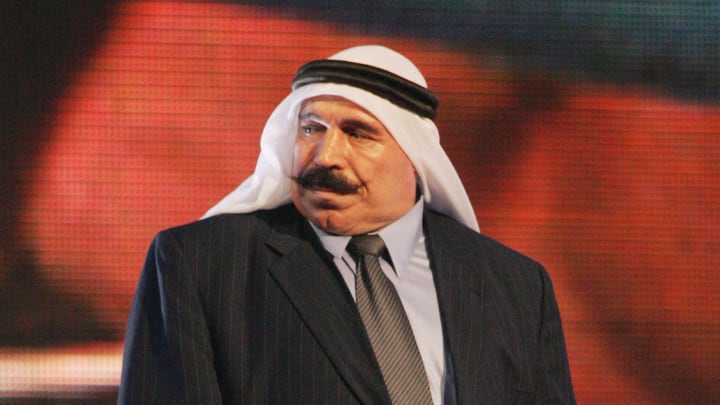Secrets About Professional Wrestlers’ Nationality

As a sport, professional wrestling blends catch wrestling with theatrical aspects and mock fighting. Professional wrestling is a more flamboyant activity than Olympic sports like Greco-Roman and freestyle wrestling, where physical strength is valued equally with personality, flair, and the ability to elicit a response from the crowd. As such, they pick only the finest players to make the match enjoyable.
In the early days of professional wrestling in North America, promoters cast American wrestlers as the heroes and their foreign counterparts as the villains. It's an odd setup for sure, but it worked for some reason at the time. Whatever the case, let's check out these wrestlers who were advertised as being from foreign countries but were actually from the United States.
Jean-Paul Levesque Turned His Back On His French Roots
WCW debuted a new character named Jean-Paul Levesque in 1994. Promotional spots featuring Levesque were frequently recorded with his alleged French accent, as he was said to be broadcasting from the northwestern region of France. Prior to his pay-per-view debut against Alex Wright at 1994's Starrcade, Levesque was primarily utilized on WCW Saturday Nights and infrequently featured on WCW Worldwide. Losing many bouts to Johnny B. Badd in 1995 led to Levesque's departure from World Championship Wrestling.
After being repackaged as Hunter Hearst Helmsley, the former French aristocrat signed with WWE under the guise of a similarly privileged wrestler from Connecticut, and not France. As one of WWE's top talents, Helmsley would later take on the persona of Triple H. Fast forward to years later, Triple H became the company's Executive Vice President of Talent Relations after retiring from the ring.
The One and Only Sheik in WWE
In the ‘60s, the WWE signed the Sheik, a pioneering wrestler who was among the many to challenge Bruno Sammartino for the WWWF World Heavyweight Championship. Several matches, including a Texas De*th Match and a Steel Cage Match for Sammartino's championship, pitted the Sheik against Sammartino. Big Time Wrestling, based in Detroit, Michigan, was also under the Sheik's direction from 1964 to 1980.
Although Sheik's background is listed as the Syrian Desert, he really grew up in Michigan. Meanwhile, the Sheik's parents were immigrants from Lebanon, giving him Middle Eastern ancestry. Also, he was a Christian, not a Muslim, unlike his character's portrayal. The Sheik was an American who served in the military after being conscripted at the age of 18 during World War II and receiving a discharge with honor.
Hassan Became a Target for Racial Attacks
For wrestling fans, Muhammad Hassan presented a compelling case study. Hassan was first presented as a Jordanian-Palestinian who felt victimized by post-9/11 racial profiling due to his religion and ethnicity. Although the plan was to make him a young star, he was engaged in a program with The Undertaker where the later was overpowered by a bunch of masked guys summoned by Hassan. Timeline-wise, this program aired the same week as the July 7 bombings in London. As a consequence of the backlash it received, the character was written out of the program.
The truth of the matter is, the wrestler who portrayed Muhammad Hassan was not a Muslim and he was also an American of Italian ancestry. His real name is Marc Copani, and he only did the stint after being invited by WWE through Jim Cornette.